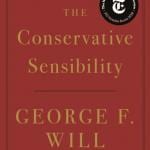This post is part of a series walking through the second volume of Abraham Kuyper’s Common Grace.
Still discussing ‘the problem’, wherein people in general are better than the doctrine of original sin would suggest and the church specifically is worse than the doctrine of regeneration and sanctification says we should be, Kuyper has in the previous chapters explored worldly answers to the problem, as well as Roman Catholic and Anabaptist solutions.
But where do the Reformed fit? What is ‘our’ answer here? We of course agree with Scripture about the fall and sin, and that we are all “wholly incapable of good.” (58) Yet, this doesn’t match our lived experiences, or even really what we see other places in Scripture. Abimelech is more virtuous than Abraham, for example. (Genesis 20) The Reformed explanation of this disparity is, as we’ve seen all along, the doctrine of common grace–combined with the reality of regeneration.
Yet, we still confess total depravity because it peeks through at times (in addition to it being a Scriptural doctrine, that is). Also, such a confession keeps us from elevating ourselves above those in whom total depravity peeks through. What’s more, we feel the truth of the Scriptural doctrine of total depravity in our hearts, which drives us all the more to grace even as we see more and more our fallen common human nature.
Even those who are regenerate understand this–we “can fall deeply.” Denying this reality will lead to “spiritual despair,” doubt, and loss of assurance. Confession of depravity sends us regularly back to God in repentance. (60)
We also see how common grace uses human means to restrain depravity, and as a result we are driven to action. By contrast, failure to acknowledge depravity causes us to look within ourselves for support, rather than to God. This is not to say that our Reformed forbearers always used Scripture well on this point.
But what about the view that ‘incapable of good’ only means that we are incapable of ‘spiritual’ or saving good, but does not imply that we are not capable of ‘civic’ good? (61) This view is partly correct, but ultimately rests on the Roman Catholic view of man as possessing a sort-of pre-fall saving grace: a duality of original human nature involving a split civic and spiritual life. Post fall, the spiritual is gone but a weakened civic nature remains. Such a distinction returns us to the essence/nature distinction made in previous chapters. Collapsing the two together undermines depravity. And it’s not just the Roman Catholics, here Kuyper thinks the Lutherans and the Anabaptists also both misfire. The Reformed alone say that we are re-created at our regeneration, rather than being a new creation entirely.
This is all true of mankind in general as well as of each individual. Our essences are not lost in our salvation: I am saved, not replaced by something new. The Reformed maintain the essence/nature distinction (which Kuyper revisits in this chapter), but holds that the two are connected by our ‘capacities and powers’, which in turn are based on who we are. Specifically, who we are in our selves and in our nature: the two of which (self and nature) may be at odds. This is easiest to see in individuals (think Paul in Romans 7), but applies to general human nature as well. Common grace can overwhelm the self and point the individual or all of humanity in a better direction than otherwise naturally desired; while particular grace recreates the fallen nature. In all of this gracious activity, man’s essence remains and is recreated, and will one day rest in glory.
Dr. Coyle Neal is co-host of the City of Man Podcast and an Associate Professor of Political Science at Southwest Baptist University in Bolivar, MO













